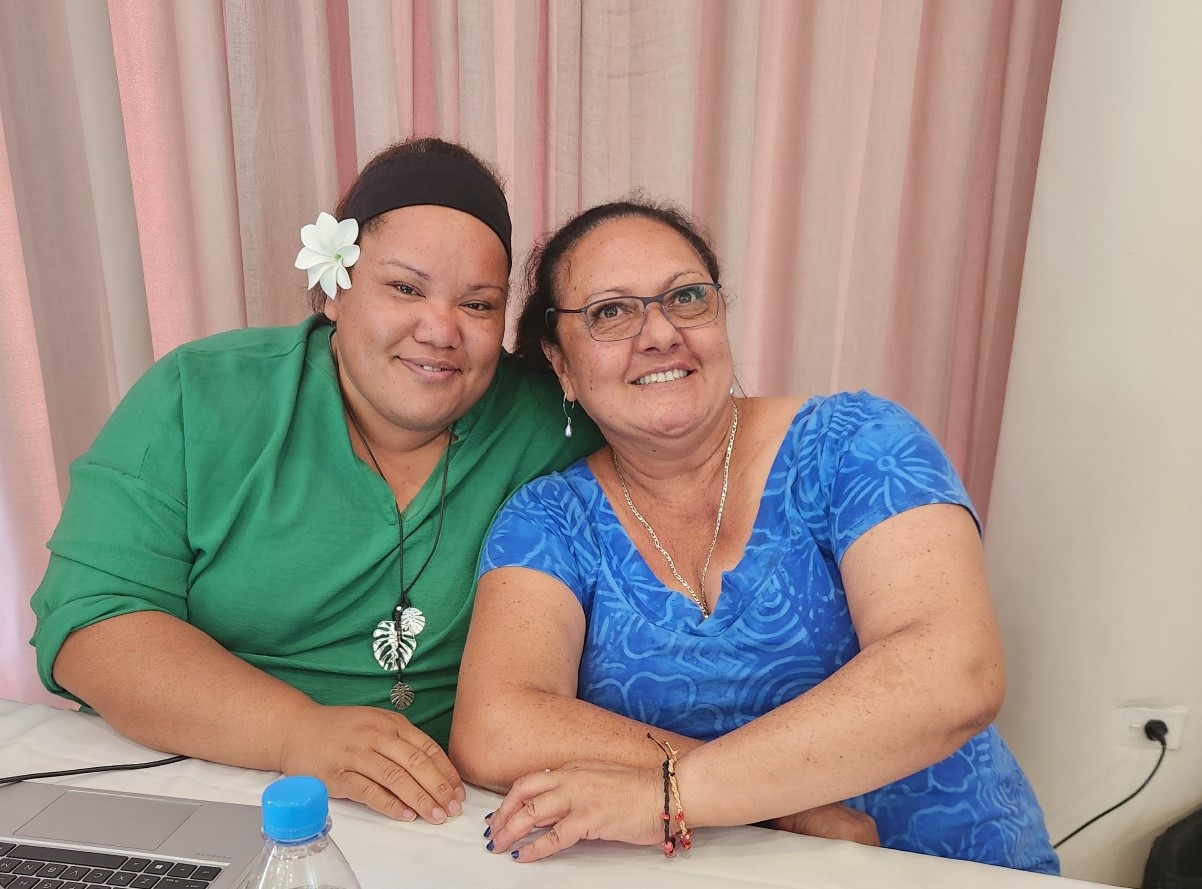Cook Islands women attend disaster risk reduction training in Tonga
Tuesday 12 March 2024 | Written by Supplied | Published in Environment, Local, National

Ella Napara and Eileen Macquarie (right) participated in the United Nations Institute for Training and Research Women’s Leadership in Disaster Risk Reduction (DRR) Training Programme held in Tonga from March 5 to March 11 (Tonga time). SUPPLIED /24030850
Cook Islanders Eileen Macquarie and Ella Napara participated in the weeklong second phase of the disaster risk reduction training in Nuku’alofa, Tonga last week.
The two were among 20 other women from the Pacific and a few from Asia attending the UNITAR (United Nations Institute for Training and Research) Women’s Leadership in Disaster Risk Reduction (DRR) Training Programme held from March 5 to March 11 (Tonga time).
Macquarie and Napara were selected out of more than 200 participants who underwent the phase one course conducted online.
The training was expected to help them enhance their knowledge and skills in disaster risk reduction, with a strong focus on leadership and management in disaster response and recovery.
According to UNITAR, climate change has exacerbated the rate and intensity of disaster events around the world, and the course focused on the unique challenges and opportunities faced by Pacific Island Countries.
UNITAR stated that the number of recorded disaster events has drastically risen due to a changing climate, impacting human security, and causing severe economic repercussions.
Socially vulnerable people such as women, the elderly, youth, children, and persons with disabilities, indigenous people, refugees, migrants, and other marginalised people have become even more vulnerable in emergencies.
UNITAR said due to gender roles and norms, women are often left to care for these vulnerable groups, adding empowering them to participate in decision-making reduces their vulnerability to disasters and benefits whole communities.
Dr. Richard Crichton, regional training and development coordinator for the UNITAR’s Division for Prosperity, in a statement to Cook Islands News said that they started the training programme in 2016, and have a dedicated and talented group of women leaders participating in this eighth cycle.
“These participants bring a wealth of experience and expertise from their respective countries, and we are confident that they will make significant contributions to advancing climate and disaster resilience in the Pacific region as they learn from the Tongan experience,” Crichton said.
The phase II of the programme featured intensive training sessions, workshops, a tour of sites impacted by the Hunga-Tonga Hunga-Haapai volcano eruption and tsunami event, and collaborative activities to strengthen the participants’ leadership capabilities and disaster risk reduction knowledge.
Crichton said recognising the critical role Pacific women play in DRR efforts and empowering them will benefit all members of the community as it provides those valuable tools and resources to enhance their impact and drive positive change in their communities.
“The selected participants represent a diverse range of backgrounds and expertise, reflecting the rich cultural and geographical diversity of the Pacific region, whilst boosting the human resources capacity of PICs. The programme will offer unique opportunities for participants to learn from each other, share experiences, and develop innovative solutions for disaster planning.”
The Women’s Leadership in Disaster Risk Reduction programme is part of UNITAR’s broader efforts to support sustainable development and build resilience to disasters and is funded by the Government and People of Japan, the statement said. >Supplied.















































